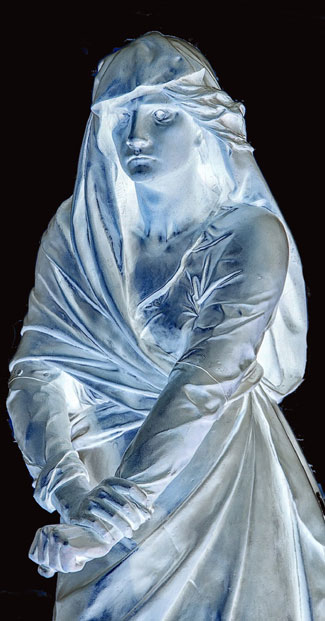
Victoria Harris had played Lady Macbeth on stage in Drury Lane every day for the past seven years, up until last Thursday.
Reviews had been wonderful for much of that time. Many papers and magazines had called her performances ‘outstanding,’ even ‘legendary.’ There was even a cover on a glossy Sunday supplement with a picture of her and the three witches declaring their interpretation of the play ‘A Masterpiece of Modern Feminism.’ There were glowing tributes of her last performance in every paper: the carefully cut headlines adorned the periphery of her dressing room table, lit by a litany of bright bulbs and brighter memories. Enormous bouquets of flowers still arrived at her house and her dressing room at the theater on a daily basis, where they were lovingly placed exactly where she would have wanted them. Their fragrance lingered like fog on a January morning; clinging but fading slowly, not wanting to let go.
Now, the part is no longer hers. She spends her days and evenings pretending not to mind, but really, she cares deeply. When you’ve made a character yours, especially for so long, then there’s inevitably some bleed. You forget who you really are because you’ve invested so much time and effort into being someone else. Unless you’re careful, you can even start to act like them.
She confesses to herself that she’s a little bored. She doesn’t quite know what to do with her time now that her most famous incarnation is gone. She feels like a ghost of her former self. Her family doesn’t even seem to notice her floating around the house all day. They either pretend she’s not there or make efforts to live around her. She tries not to get in the way. They don’t seem to care. Naturally, they’re all terribly sad that she’ll never be Lady Macbeth again. She knows this because occasionally one of them will burst into fits of uncontrollable tears and the others rush to comfort them.
It’s the costume that bothers her most. It hangs -- longingly, lovingly -- on the back of her bedroom door. It beckons to her. Calls to her. Tugs at her very soul. There’s a spot of blood on the front of that dress, an affront to an otherwise pristine white, which nevertheless feels in keeping with the character. Victoria is fascinated and horrified by it in equal measures. She reaches for it, touches that tiny, vivid speck of blood. It mars the dress. It accentuates the dress. It tells of tragedies past but also the reality of the present in a vivid reminder of life spent. A little of the blood -- dried now -- flakes off when she touches it.
Her family have tried several times to clean that dress. She’s seen them. Every time, she screams at them to leave it be. Terrified, they back off.
Victoria tries to go back to a normal life. To carry on with all the things she did beforehand, at least those that she remembers. She goes back over and over to her familiar haunts. She tries to move on. But she can’t. Because Victoria died on stage -- metaphorically and literally -- last Thursday.
Originally appeared in Black Petals.

The Piker Press moderates all comments.
Click here for the commenting policy.